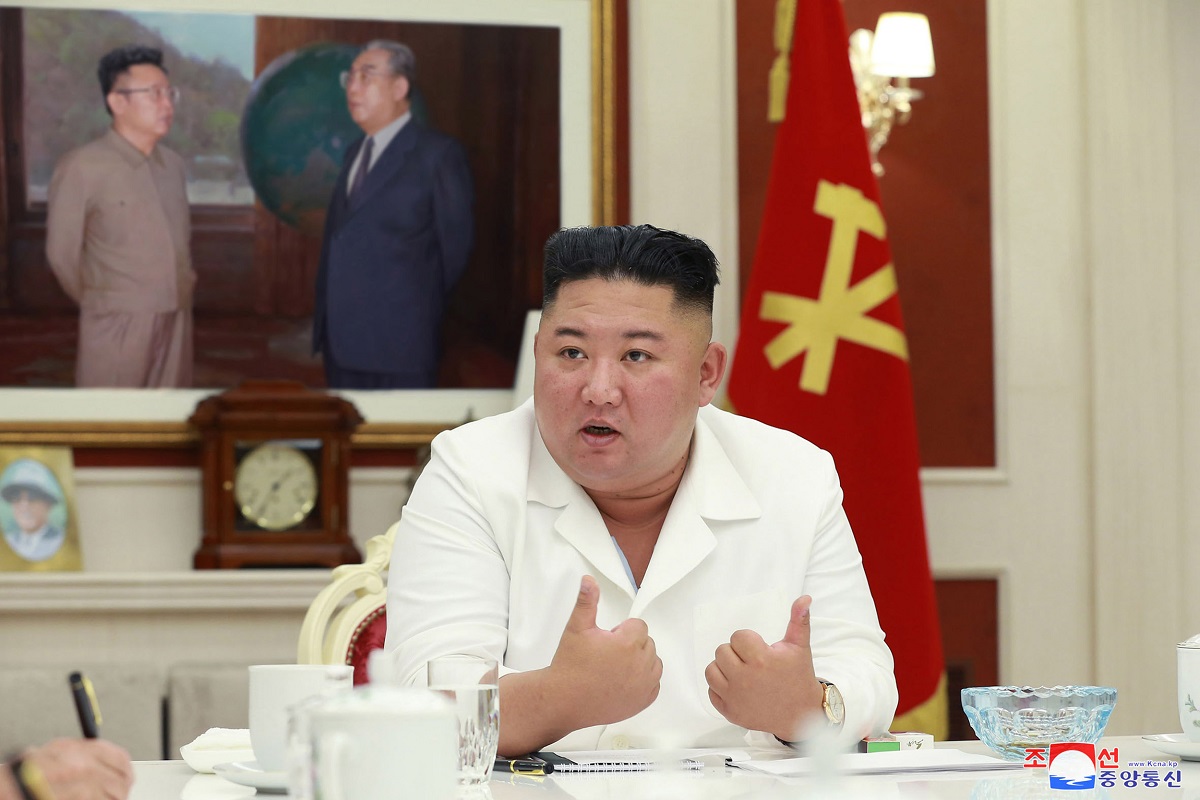North Korean leader Kim Jong Un visited a flood-damaged village in North Hwanghae Province after recent heavy rains left more than 900 homes inundated or destroyed there, state media said Friday.
During the visit to the Taechong-ri Area of Unpha County, Kim ordered officials to send his special stock of grains to the flood victims and facilitate the use of necessary supplies in rebuilding the damaged sites, Pyongyang’s official Korean Central News Agency (KCNA) said in the report.
Advertisement
“It is of priority importance to quickly supply sleeping materials, daily commodities, medicines and other necessities to the flood-affected people to stabilize their living as early as possible,” the KCNA report quoted Kim as saying.
“He ordered the relevant field to submit a document on supplying every household in the afflicted area with the reserve food grain of the chairman of the State Affairs Commission,” KCNA said.
About 730 homes and 600 hectares of rice fields have been flooded and 179 homes destroyed after a levee broke as heavy rainfall pounded the country for days, but no casualties were reported, KCNA further added.
Kim’s visit marks the second of its kind since he became leader in 2011, following the inspection of North Hamgyong province that was hit by a flood in 2015.
Kim called on officials to “responsibly conduct the work of putting up the residents who lost their homes at offices, including those at the Party committee and people’s committee of the county, public buildings and separate houses, to stabilize their living and comfort them.”
The North Korean leader’s visit and his decision to open up his grain reserves for the flood victims appear intended to allay public grievances, as the impoverished country has struggled to prevent an outbreak of COVID-19 in the North for over six months in an economy already faltering under international sanctions, according to the report.
In 2016, over 60 people were killed and 25 were reported missing in floods that destroyed buildings, infrastructure and agricultural fields in the northern part of North Korea.
North Korea is vulnerable to natural disasters due to its lack of infrastructure, with heavy rains, in particular, leaving thousands of people displaced in the impoverished country.
(With inputs from agency)











